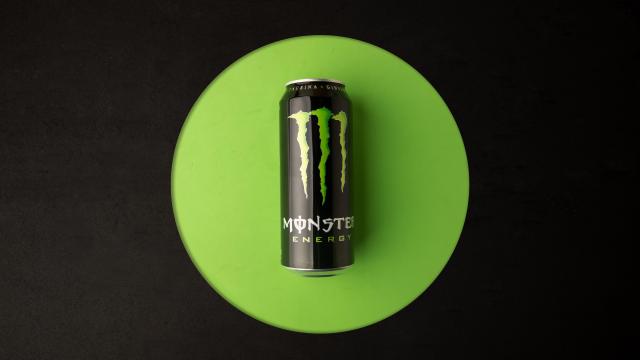The company behind Monster Energy drinks is infamous for claiming that others are infringing its trademarks. In fact, a new report states that company isn’t been above threatening beloved video games like Pokémon and Monster Hunter because it believes that consumers could confuse the games with Monster Energy drinks.
A report published this week in Automaton, a Japanese media outlet, claims that Monster Beverage Corporation has complained over trademark registrations for Pokémon X, Pokémon Y, Pokémon Sun, and Pokémon Moon over the years, as well as the Monster Hunter brand and the video game Monster Hunter Generations. The mobile game Monster Strike didn’t escape Monster Beverage Corporation’s all-seeing eye, either. The company opposed the game’s full title and its abbreviation, “Monst.”
In Japan’s Patent Office, Monster Beverage Corporation has presented a staggering 134 trademark objections. In the U.S., meanwhile, it has more than 100 objections before the Patent and Trademark Office. Monster is partially controlled by Coca-Cola and has a $US55 ($76) billion market cap.
Although the claim that someone could erroneously associate the Monster Hunter and Monster Strike video games with Monster Energy drinks is highly debatable and unlikely, you may be asking: What does Pokémon have to do with all of this? In the case of the Pokémon brand, Monster Beverage Corporation argued that the company’s brand presentation — in Japan, the series uses both its full title, Pocket Monsters, and its abbreviation, Pokémon — could cause people to mistakenly believe that the product was related to Monster Energy drinks.
As expected, these objections didn’t go anywhere, and Pokémon’s games went to market with their original names. However, this hasn’t been the case for all brands that have been attacked by Monster Beverage Corporation.
In 2020, Ubisoft changed the title of its video game from Gods & Monsters to Immortals: Fenyx Rising after Monster complained that the original could be easily confused with its brand. At the end of March, the indie studio Glowstick Entertainment revealed that it was fighting against Monster Beverage Corporation in a case before the U.S. Patent and Trademark Office in an effort to keep the name of its game: Dark Deception: Monsters & Mortals.
“Monster Energy is a bully that is owned by CocaColaCo,” Vincent Livings, founder and CEO of Glowstick, said in a Twitter thread on March 29. “Do not support a bully company by buying their energy drinks. If nothing else, I hope they eventually learn that going after game studios is not in their best interest.”
1. It’s well known that @MonsterEnergy is a notorious trademark troll. Unfortunately, they’re at it again. For a company that likes to target their drinks at gamers, they also like to try to bully & bankrupt game studios with lengthy high dollar litigation. #indiegamedev #gamedev pic.twitter.com/8xvg7iWqQe
— Vincent Livings (@VincentLivings) March 29, 2023
Livings stated that Monster Beverage Corporation tried to negotiate with him and proposed allowing the studio to use the name Monsters and Mortals in exchange for agreeing to never use any variation of “monster” in any other future game.
Monster Beverage Corporation has deep ties to the video game industry and is a notable sponsor of streamers and events. Nonetheless, its harassment isn’t limited to those involved in the video game industry. In the past, the company tried to get the Toronto Raptors, an NBA basketball team, to stop using a clawed up basketball as its team logo because it claimed it was too similar to its “M” Monster logo.
The company also doesn’t differentiate between big and small companies when it presents a complaint. Last month, Monster Beverage Corporation sued a local Lebanese restaurant in Ohio for using its logo on the restaurant’s sign. More than 10 years ago, it fought a years-long legal battle with a group of fish keepers who belonged to an online forum called “MonsterFishKeepers” and wanted to sell merchandise with the forum’s name.
Gizmodo reached out to the Monster Beverage Corporation and the Coca-Cola Company for comment but did not receive a response by the time of publication.
